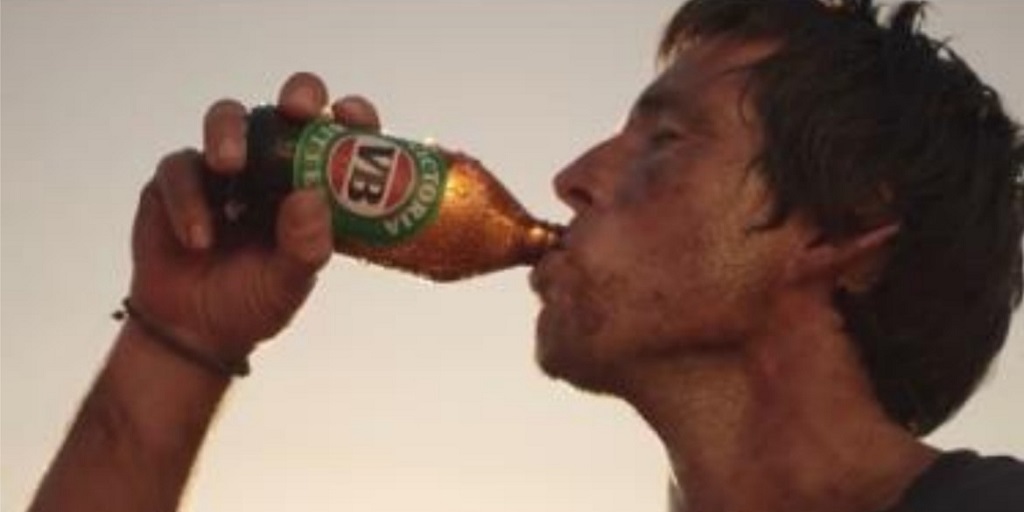
Radio and TV ABAC complaints dismissed
Two complaints regarding TV and radio ads from Victoria Bitter and Capital Brewing Co. have been assessed by an ABAC judging panel.
Brewers have recently faced with complaints regarding packaging, but this week an ABAC adjudication panel has dealt with complaints relating to more traditional marketing mediums.
In both cases, the complaints were dismissed.
Capital Brewing Co.
A complaint against a humorous radio advertisement from Capital Brewing Co. has come in front of the ABAC panel.
The voice-over advert jokingly mentioned the “science people at Questacon inventing flying cars” and “the Defence Force cadets training hard for the war against New Zealand”, which finished by saying that all workers in the capital deserve a cold beer at the end of the day.
The anonymous complainant said that referencing the Australian Defence Force and cadets “in a war with New Zealand” was a “brand safety concern for Defence reputation” and alleged that it was a breach of Government advertising guidelines.
They said that the alcohol ad refers to children – Defence Force cadets – which they said was “inappropriate”.
“It also states these children are in a war with New Zealand which is a breach of the UN and Geneva Conventions,” they said.
“Permission from the Defence Force has not been granted for association with this company. This is defamation and misappropriation of Defence’s brand.”
Capital responded saying that it had not intended any malice in the tongue-in-cheek tone of the advert, and it did not know that cadets are under the age of 18.
It said that it admitted to breaching the code and pulled the advert when it first became aware of the complaint.
Capital’s proactive and responsible approach proved unnecessary with ABAC ruling that it did not breach its standards.
The ABAC panel said that government advertising guidelines and the reputation of the ADF did not fall under its scope, and instead focused on whether the ad encouraged offensive behavior in relation to alcohol use, or depicts a minor engaging with an alcoholic beverage, which are stipulations of the code.
It said that it believed the advert was consistent with ABAC standards, saying that it did not believe a reasonable person would believe that the ad was showing or encouraging drinking in minors.
It said the vast majority of officer cadets are adults and the advert is clearly intended to be light-hearted “given New Zealand is a close, long standing and committed Australian ally and history of good-natured banter between residents of both nations”.
The panel conceded that it could understand that a possible interpretation of the reference regarding cadets meant school-age children, although it was not the opinion of the panel.
It noted Capital’s willingness to quickly withdraw the ad, and that any ambiguity could be addressed in future versions of the advert by elaborating on the type of cadet it was referring to.
Victoria Bitter
A VB advert featuring shots of people working under the hot sun at a solar farm, at the end of which they drink stubbies of VB.

An unnamed person wrote in complaining that the adverts showed people “quaffing” VB and that alcohol is a carcinogen and a “monstrous social problem”.
While not explicitly stated in the complaint, part of alcohol advertising code bans showing or encouraging excessive or rapid consumption of alcohol, or its misuse.
Carlton & United Breweries responded saying that VB is one of Australia’s “most beloved and longstanding beer brands”, and that the ad was made to celebrate that the beer is now brewed with 100 per cent offset solar electricity.
It argued that the workers are seen partaking in a VB at the end of a long workday, with not even enough beers shown for one per person.
The ABAC judging panel responded saying that the danger of alcohol is a valid viewpoint to express, but beyond the remit of the code as it is the remit of the government to determine whether it should be restricted or not.
It said it did not believe that the ad breaches the standard, because a reasonable person would not believe that excessive or rapid consumption is being encouraged.



